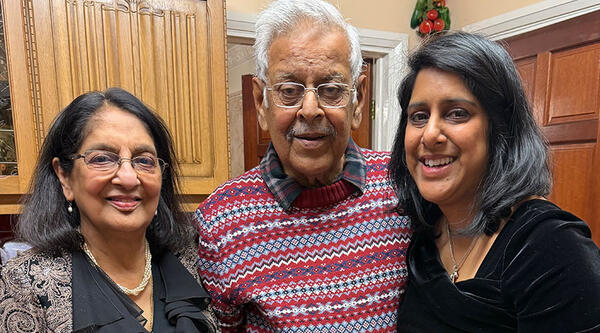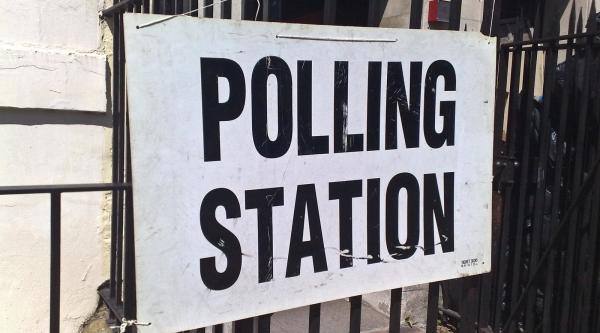Care assessments for people with dementia in Wales
Anyone with dementia can get a care assessment. It should identify the person’s needs and what support would meet these needs. It also helps to inform the decision around who pays for care.
Assessment for care and support in Wales
- Assessment for care and support in Wales
- You are here: Care assessments for people with dementia in Wales
- Carer's assessments in Wales
- Financial assessment for carers in Wales
- Organising care plans and financial support in Wales
- Reviews and complaints in Wales
Anyone with dementia can get a care assessment. It should identify the person’s needs and what support would meet these needs. It also helps to inform the decision around who pays for care.
What is a care needs assessment?
A care assessment for a person with dementia may be called different things by different organisations. This includes a ‘community care assessment’, a ‘care needs assessment’ or a ‘social care assessment’.
Everyone has unique needs, so the type of care and support will be different from person to person. Needs also change over time. Care and support should be tailored to meet the person’s needs now and then adapted or increased in the future.
Examples of care and support could be:
- someone visiting their home to help prepare meals
- help with dressing or washing
- attending a day centre or other activities in the community.
The local authority’s social services or adult services department carry out most assessments. The assessor is normally a social worker (who may be referred to as an assessor). This person may ask to involve other professionals, for example, the person’s doctor.
The criteria for a care assessment
The assessment of need will identify if the person with dementia has one or more ‘eligible care needs’. A person must have an eligible care need for the local authority to consider paying for their care and support.
There are four criteria (conditions) that apply across Wales. The local authority uses them to decide whether a person is eligible for care and support. These are:
The person’s needs are due to their physical or mental health, age or disability (this includes dementia).
The person’s needs mean they are unable to do at least one of the following:
carry out self-care or domestic routines – such as cooking meals or bathing
communicate
protect themselves from abuse or neglect
be involved in work, education, learning or in leisure activities – such as volunteering or going swimming.
maintain or develop family or other personal relationships – such as spending time with friends
maintain and develop social relationships and involvement in the community – such as going to the library or local shops
carry out caring responsibilities to a child.
The person doesn’t have a carer or community support to meet their needs, or they can’t meet them on their own.
The person is unlikely to meet their needs without support from the local authority.
After the assessment, the local authority may decide that the person with dementia does not have an eligible care need. If you or the person believes they do, you will need to make a complaint.
What is the Mental Capacity Act?
Read more about the Mental Capacity Act and how it relates to an individual's property, financial affairs, and health and social care.
What to expect with a care needs assessment?
A care assessment will usually involve answering questions as part of a discussion. The assessment is designed to find out the person with dementia’s ‘personal outcomes’. ‘Personal outcomes’ are tasks and activities the person with dementia wants to do daily or weekly. For example, the person may want to cook and eat in their own home and would like support to do this. The assessment considers five key things:
the person’s circumstances – for example, do they have any mental or physical health conditions (including dementia) and do they live alone?
the person’s outcomes – what does the person want to be able to do? For example, go shopping or to see friends
any barriers to the person achieving those outcomes – for example, any mobility problems
the risks to the person if the outcomes are not achieved – for example, they may feel isolated or depressed if they can’t see friends, or they may become ill if they are unable to buy food
the person’s strengths and capabilities – such as being able to manage their money or joining in with social events.
Everyone at the assessment will discuss the answers. However, not all assessments are done face-to-face and may be done through a self-assessment questionnaire.
Self-assessment questionnaire
Sometimes an assessment is done through a questionnaire that the person with dementia completes themselves. They may need help to fill this out. You or a social worker can help make sure that all their needs are considered, or you can also ask the local authority for support. Some local charities, such as a carers’ centre, may also help with this.
Assessments in Welsh
You and the person with dementia have a right to have the assessment in Welsh. The local authority must meet this request and this should not delay the assessment.
See more about our information in Welsh
Where the care needs assessment takes place
A face-to-face assessment usually takes place in the person's home. This can help the assessor understand what care and support the person needs. If the assessment is arranged elsewhere, it should be somewhere convenient for the person and you.
The care assessment: tips
The tips below can help the person with dementia get more from the assessment. Use the suggestions to make notes or comments on relevant details. Make sure to share these in the assessment.
Create a daily diary for a few weeks. Include tasks the person needs help with.
Make a list of any medicines the person is taking. Include what conditions they are for.
Collect any letters from the GP or other professionals. This is called ‘supporting evidence’, such as a GP letter suggesting ramps if the person has problems with walking.
Are there carers or relatives that the person would like at the assessment? Check if they are available to attend.
Does the person follow any cultural or religious practices? They may have dietary requirements, such as being a vegetarian, or may regularly visit a place of worship.
What support do they get from family and carers? Even if these people carry on giving care and support, the assessment should cover what would happen if they could no longer do this. It’s also important to mention if anyone is finding it difficult to provide care or meet the person’s needs.
Is there any equipment or assistive technology that would help? This could be an automated pill dispenser or smart home systems. For more information see our guidance on Using technology to help with everyday life.
Is there any care and support given by professionals that would help? This could include care and support from a care organisation, support groups or day centres.
What care and support might they need in the future as their dementia progresses? This can include support from other people, as well as equipment and assistive technology.
During the assessment of need
- Be honest. Some people feel uncomfortable talking to professionals about their problems. The assessor will be used to discussing things like incontinence and changes in behaviour. Being open will help the person with dementia get the best results from their assessment.
- Tell the assessor if there are things the person wants to do. For example:
- be more active
- stay living at home for as long as possible
- attend groups and events to engage with other people
- get help with activities such as shopping or going for walks.







